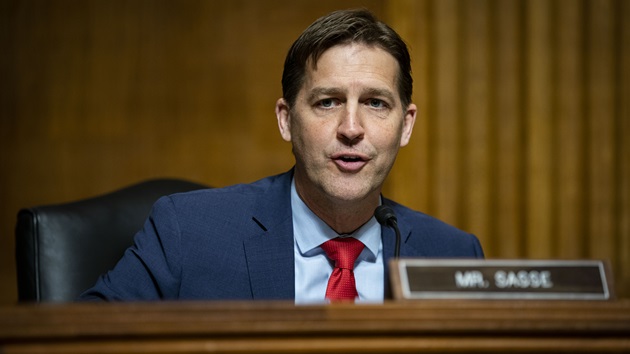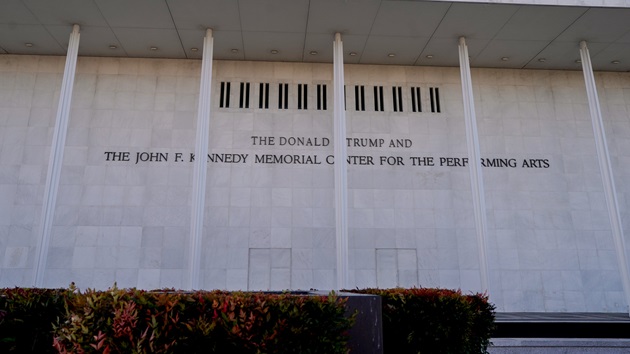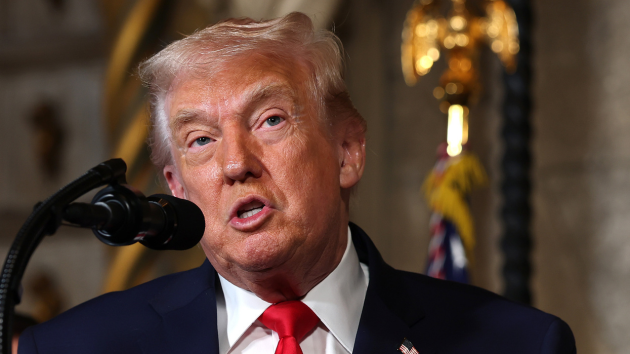Where Kamala Harris, Donald Trump stand on key issues heading into ABC News debate
Written by ABC Audio All Rights Reserved on September 10, 2024

(WASHINGTON) — Vice President Kamala Harris and former President Donald Trump will meet for the first time on Tuesday for a presidential debate hosted by ABC News.
The two are facing off at a pivotal time, with just weeks until Election Day and days before some states begin the early voting process.
The ABC News presidential debate will take place on Sept. 10 at 9 p.m. EDT and air on ABC and stream on ABC News Live, Disney+ and Hulu.
Hot-button political issues that are likely to be discussed by Harris and Trump include the economy, immigration, reproductive rights, crime, and more.
Here is a brief look at where each of them stand on key election-year topics as reflected in recent ABC News/Ipsos polling.
Economy, inflation
Trump has been a vocal critic of the Biden-Harris administration’s handling of the economy, saying their policies are to blame for inflation, which reached a 40-year high in 2022 but has since cooled to 2.9% year-over-year as of July.
On policy, he’s pledged to cut costs by restoring “energy independence” through drilling more oil and lowering gas prices. He’s also said he would reduce the national debt, eliminate regulations and implement a variety of tax cuts for domestic corporations as well as tariffs on foreign imports.
Harris has presented a plan for what she’s calling an “opportunity economy” that builds on what the administration’s done on drug pricing and the Child Tax Credit but also goes further on several fronts.
Her proposal includes $25,000 in down-payment support for first-time homeowners, construction of 3 million new housing units, raising the minimum wage and a federal ban on corporate price-gouging on food and groceries. She’s also pitched a $50,000 tax benefit for new small businesses and a lower long-term capital gains tax of 28%.
Immigration
Trump has made immigration and border security a focal point of his campaign, often going further in his anti-immigrant rhetoric than he did in 2016.
He said if elected, he plans to finish the U.S.-Mexico border wall, revive “Remain in Mexico” and asylum restrictions and “carry out the largest domestic deportation operation in American History” of immigrants living in the U.S. without legal permission. Trump has also promised to sign an executive order to end birthright citizenship.
Harris has defended the administration’s handling of the issue, specifically her role in taking on root causes of migration from Central America.
She’s also railed against Republicans for rejecting a bipartisan border bill that would have tightened asylum rules and implemented other immigration restrictions while also increasing resources to improve legal immigration pathways. Harris said if elected, she would continue to push for the legislation and pledged to sign it if it came to her desk. She also wants comprehensive reform that includes an earned pathway to citizenship.
Reproductive rights
Harris became the face of the administration’s fight for reproductive rights and abortion access after the fall of Roe. v. Wade, traveling the country to speak on the issue.
She has called on Congress to pass a law restoring protections to the right to abortion that were guaranteed by Roe. She’s been highly critical of state-level restrictions, questioning why Republican lawmakers don’t “trust women.”
Trump frequently touts his role in nominating three Supreme Court justices who voted to overrule Roe but has changed his stance on some issues as the campaign’s gone on. While he previously voiced support for a nationwide ban, he now says it should be up to states to regulate abortion access.
Recently, he declared that under his administration, the government or company insurance would be mandated to pay for all costs associated with in vitro fertilization or IVF. Though he didn’t specify how exactly the program would work or be funded.
Crime, gun violence
Gun violence is back in the news after two students and two teachers were killed in a shooting at Apalachee High School in Georgia.
Harris called the shooting a “senseless tragedy” and said it “doesn’t have to be this way.” She has called for nationwide red flag laws, universal background checks and an assault weapons ban.
Trump blamed a “sick and deranged monster” for the shooting. He has often argued in the wake of mass shootings that guns were not to blame but rather mental health issues. He’s referred to himself as the “most pro-gun” president in history and has not signaled he would enact any gun control measures if elected.
Overall, Trump has frequently claimed crime rates are rising despite violent crime being down across the country overall compared to last year. Harris, meanwhile, has leaned into her background as a prosecutor, saying she has a record of taking on drug cartels and corporations in the interest of everyday Americans. She also pledged to continue funding law enforcement agencies, touting the Biden administration’s American Rescue Plan for investing $15 billion in public safety.
Foreign policy
Harris has, so far, adopted much of President Biden’s foreign policy stances. She said as president, she would continue to stand with Ukraine and NATO. She’s also pledged to “never hesitate to take whatever action is necessary to protect U.S. forces and interests from Iran and Iran-backed terrorist groups.”
On the Israel-Hamas war, Harris has reiterated support for Israel’s security but also expressed sympathy for the plight of civilians suffering in Gaza. She’s called for a cease-fire with hostages returned and said she is working with Biden to secure such a deal.
Trump has claimed neither the Israel-Hamas war nor the Russia-Ukraine war would have started if he were president. He’s signaled he would cut back U.S. aid to Kyiv and continues to criticize NATO allies who he says are not doing enough. He’s also expressed staunch support for Israel’s right to defense and to go after Hamas, but has also called for a quick end to the war.
Trump’s also sought to make Afghanistan a key topic in recent weeks after the third anniversary of the U.S. withdrawal of troops from the country. He’s slammed the Biden-Harris administration for the chaotic withdrawal, blaming them for the death of 13 U.S. service members who were killed in a suicide bombing at Abbey Gate. Harris defended the decision to end America’s “longest war” and said she would take action to protect Americans against terrorist threats.
Democracy
Trump continues to make false claims about the 2020 election, asserting without evidence it was rigged or stolen. He currently faces state and federal charges stemming from his efforts to overturn his election loss, to which he pleaded not guilty. Last week, he appeared to admit he lost the 2020 election, saying he got more votes in his reelection campaign than in 2016 but still “lost by a whisker.”
In a major escalation of that rhetoric, Trump said that if he wins this race, those who “cheated” would “be prosecuted to the fullest extent of the Law, which will include long term prison sentences.” He suggested his apparent threat of “legal exposure” applies to “Lawyers, Political Operatives, Donors, Illegal Voters, & Corrupt Election Officials.”
Trump’s also sent mixed messages on voting methods this cycle, often doubling down on his calls for Election Day voting only and making groundless claims that mail-in voting is ripe for abuse while also encouraging supporters to cast their ballot whether it’s early voting, mail-in voting or other forms of voting.
Trump’s also accused Democrats of a “coup” after President Biden exited the race and endorsed Harris, who quickly secured enough party support to become the nominee.
Harris has been critical of efforts to cast doubt on the election, claiming Trump tried to “throw away” people’s votes and blaming him for what happened at the U.S. Capitol on Jan. 6, 2021.
She’s said as president, she would advocate for the John Lewis Voting Rights Act and the Freedom to Vote Act to bolster voting rights and vowed to “hold sacred America’s fundamental principles, from the rule of law, to free and fair elections, to the peaceful transfer of power.”
ABC News’ Gabriella Abdul-Hakim, Hannah Demissie, Fritz Farrow, Lalee Ibssa, Soo Rin Kim, Will McDuffie and Kelsey Walsh contributed to this report.
Copyright © 2024, ABC Audio. All rights reserved.

 KVSP
KVSP 





